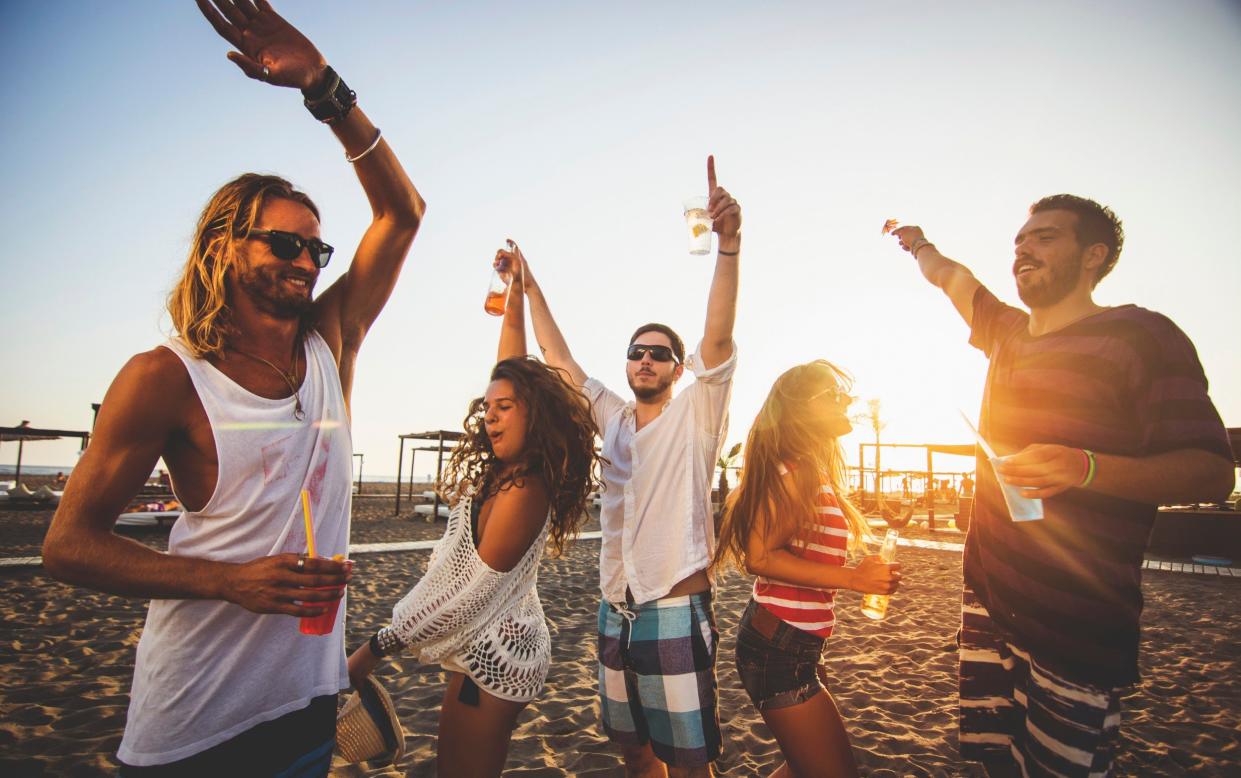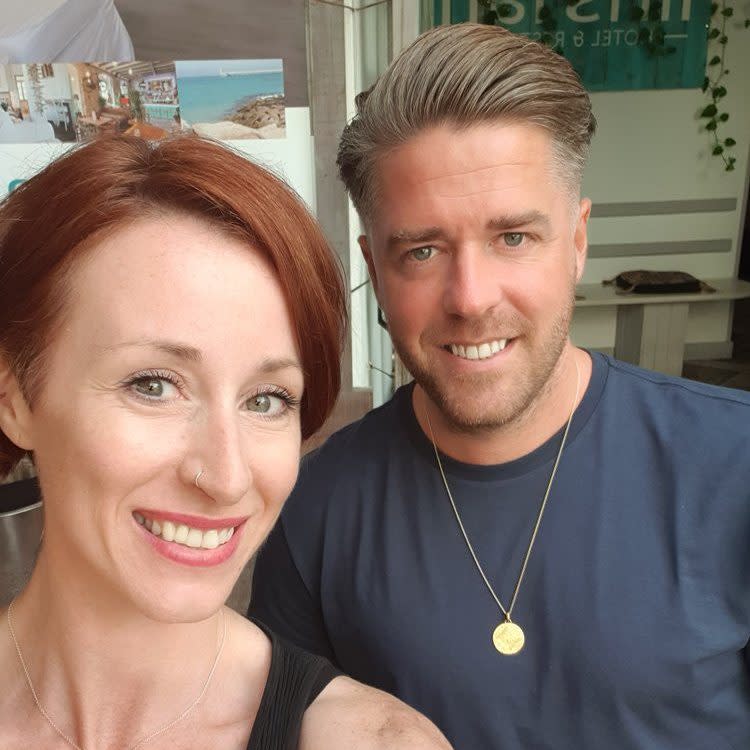Millennials are turning their backs on traditional boozy breaks

For many, holidays and alcohol are inextricably linked – as evidenced by the surprisingly large number of travellers whose pre-trip ritual involves a 6am pint at an airport Wetherspoons.
Those relaxing in airside lounges or turning left when they board the plane may feel a little more refined, but guzzling champagne still defines the flying experience for many. And the corks keep popping once you’ve arrived, from welcome cocktails in hotels to vineyard tours, bar crawls and all-inclusive resort packages that encourage you to drink your money’s worth.
Yes, we are a nation whose holidays are framed around alcohol, but change may be afoot. A recent UK study showed that the younger generation are turning their backs on the bottle in significant numbers. Of those aged between 16 and 25, more than a quarter described themselves as teetotal, compared to just 15 per cent of those aged between 55 and 74.
While it’s impossible to distill the exact reason for this, an increased awareness surrounding the dangers of excess alcohol, a life – and therefore drunken incidents – documented online, and the simple matter of cost could all play a role. Across generations, the ubiquity of the likes of Dry January and Sober October has likely made us more conscious of our intake at the very least.
Changing habits
And now, a crop of travel companies dedicated to small-group trips where alcohol is strictly off-the-table are capitalising on our shifting habits. Lauren Burnison set up We Love Lucid after quitting drinking in 2016, heading out on a round-the-world, bucket-list trip and “realising how few activities there were for people who didn’t drink or at least didn’t want booze to be the focal point of their experience.”

She adds: “I wanted to share with others the life-changing impact that booze-free travel had on me. I could wake up fresh every morning, make the most of the day, check out super-interesting places and try new activities. I made meaningful connections and had no regrets about the usual drunken escapades that take place on your holidays.
“Most importantly, I wanted to give people the opportunity to connect with others that have decided to quit or that are reassessing their relationship with alcohol.”
The fledgling company has run dry trips to the likes of Newquay in Cornwall and Tarifa in Spain, with more far-flung destinations such as Oman and Mongolia in the pipeline. Intriguingly, guests have typically been aged between 35 and 50 and are either firmly teetotal or at least experimenting with sobriety.
Activities have ranged from windsurfing to foodie experiences, with non-alcoholic fizz receptions and hand-crafted mocktails adding a sense of celebration.
Holiday mode
It may seem unusual to plan a group holiday based around not partaking in something, but Lauren believes that travel is so closely defined by alcohol that focus is needed to sever the link.
“Alcohol has always been marketed as something that helps people relax and therefore when people go on holiday to relax, they immediately associate alcohol with that experience. It’s ironic, actually, as some of my most depressed and anxiety-ridden moments have been caused by hangovers, including hangovers on holidays.
“Also, on holiday, people tend to live by a different set of rules. You could call it ‘holiday mode’. They drink at times they wouldn’t usually drink and they often drink more. It’s absurd. I used to go travelling to countries for six months or more and justified this level of drinking for the entire time.”

She thinks a societal shift towards mental and physical well-being and a post-lockdown emphasis on more active, outdoor lives is why sober travel is on the rise and predicts that as the “new wave of non-drinking 20-somethings” have more disposable income, the sector will only grow. Of course, the cost-of-living crisis could prove a hindrance.
Of the other tour operators marketing booze-free breaks, some are designed more for recovering alcoholics. US firm Sober Vacations, for example, whose upcoming trips include a river cruise in Vietnam and a Mexican beach holiday, provides access to daily 12 Step meetings, but these are not mandatory and they are welcome to bring a non-sober partner or friend on the holiday.
The company also hosts annual ‘Sober Villages’, where it buys out whole resorts and puts on activities such as ‘attitude adjustment workshops’ and ‘recovery yoga’, as well as scavenger hunts.
The rise of mocktails
More generally, hotels across the globe are adapting to the increase in those seeking non-alcoholic options. On a recent hotel stay in Prague, my welcome gift was a bottle of sparkling tea from Copenhagen presented in an ice bucket with two fine glass flutes.
Far from a cheap cop-out, the champagne-like tipple retailed at around £50 in the hotel restaurant and in the UK counts Fortnum and Mason among its stockists. We’ve certainly come a long way from Shloer.
And instead of a token sickly-sweet fruity concoction or simply fizzy drinks, good hotels now have multiple mocktail options, which are mixed with as much care as boozy tipples. At the Connaught London’s award-winning bar, non-alcoholic cocktails start at £14 and are infused with the likes of fermented apple, clarified berries yoghurt and bee balm. While it can still jar to see these drinks at premium prices, the elevation of these drinks is arguably more inclusive.

Certainly many of our most popular travel destinations want us to moderate our drinking and are becoming less fearful about putting the brakes on boozing. Much has been made of Magaluf’s six-drink-a-day limit, while Amsterdam is looking at shutting bars earlier in tourist areas.
Meanwhile, dry destinations such as Dubai’s neighbouring Emirate of Sharjah are attempting to launch themselves as viable holiday locations for Westerners, and global luxury hotel group Anantara has boldly launched a Maldives-style island resort off Doha which is entirely alcohol-free – something which would have seemed unthinkable a few years ago.
Ultimately, more celebratory non-alcoholic drinks and an embrace of different lifestyles and attitudes to alcohol can only be a good thing – so long as it doesn’t come with a side of moralising that so often seeps in with wellness drives.
Though as many long-standing non-drinkers, including my father who hasn’t touched a drop for 20 years, will tell you, waking up each morning without regret and with a feeling of control can be enough of a celebration in itself.

 Yahoo Movies
Yahoo Movies 
